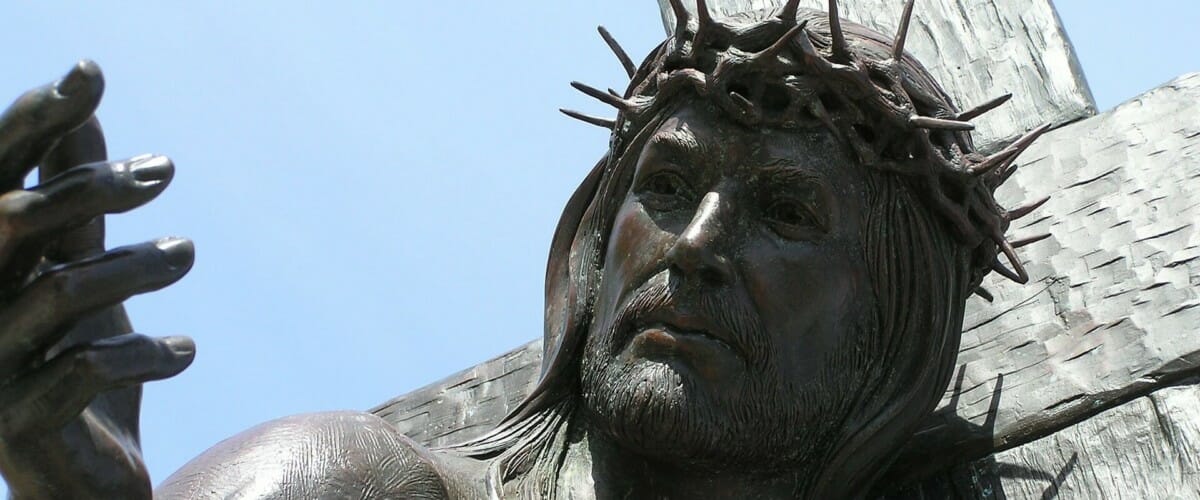If this were to be taken away, just for a second, all would be lost.
Back when I was growing up Roman Catholic, I learned that sins came in two varieties. Some were venial —misdemeanors—but just like parking tickets, you wouldn’t want them to pile up. And then there were mortal sins—felonies. If you died with one of these on your record without confession, you could be lost.
Whether we’re aware of it or not, the evangelical subculture has its own lists of sins. Likely, your church or favorite ministry has warned you about the big ones, managing to weave them into sermon illustrations, if not dedicating entire conferences to them.
We tolerate all the rest as “acceptable,” accumulating them like pocket trash—certainly nothing to get worked up over. Rather, we save our energy to carefully navigate the minefield where the big sins lie that bring public shame and a torpedoed Christian life.
Success in avoiding these brings us a certain pride that we’ve escaped the moral sewer lesser Christians have blundered into. Condemnation and justification, it seems, directly link to the size of the sin committed, the frequency of it, and the social acceptability of it.
But what if we were to take the Bible’s teaching of indwelling sin seriously (Rom. 5:12-14; 7:7-24)—the fact that regardless of who we are, of what we’ve steered clear of, a dark sentient shadow has tainted us and is resident within, even if we are not actively cooperating with it.
Should we, for an instant, try to see ourselves from Scripture’s vantage point, outside of ourselves, then how we really appear in the eyes of God becomes grotesque. In fact, even those smaller indiscretions we are prone to pardon (that I mentioned earlier) are the most reliable indicators that something malevolent still lurks within us. Some of these sins have borrowed respectable forms, which is how we can manage to pray selfish prayers, have self-serving spirituality, and entertain ministerial ambitions that are fueled by a lust for significance.
Were we to understand our sin problem all at once, not only about ourselves but for the entire church community surrounding us, it is likely we would sense a weird sort of despair, a vision not unlike the departure of God’s glory from the desecrated temple (Ezekiel 10). What hope would we have of obtaining that precious promise of Christ that “where two or three are gathered in my name, there am I among them ” (Matt. 18:20)?
And yet, in every way, the Scriptures point to a God who graciously condescends to dwell among His people, even while they are in an imperfect and potentially offensive state:
“Thus he shall make atonement for the Holy Place, because of the uncleannesses of the people of Israel and because of their transgressions, all their sins. And so he shall do for the tent of meeting, which dwells with them in the midst of their uncleannesses” (Lev. 16:16).
A quick scan of the earlier verses in that chapter shows us a description of the great Day of Atonement, an Old Testament figure of eternal redemption. The death of Christ gathers into itself all the elements of sacrifice presented in that chapter—of bull and goat and sweet smelling incense, of entry into the holy of holies, and sprinkled blood.
As much as possible, that imperfect picture portrays sin paid for and borne away. It speaks of the crushed Son of God and the fragrance His perfect inward character, purity of motive, boundless love—all rising like a cloud before the throne of righteousness and dispelling the reprehensible stench of sinful humanity. And the blood sacrifice of Christ both pays the awful penalty of sin before God, simultaneously bearing that sin away forever, out of our sight.
“He shall make atonement for the holy sanctuary, and he shall make atonement for the tent of meeting and for the altar, and he shall make atonement for the priests and for all the people of the assembly” (Lev. 16:33).
If atonement was applied in so many areas, it also suggests the pervasive extent of the people’s previous uncleanness. Had the Day of Atonement disappeared with its sin offerings, nothing would have been left among God’s people except their uncleanness.
Like our predecessors, without the extensive cleansing of Christ today, the church would instantly become nothing more than a collection point for sins, a garbage dump.
Our entire standing every moment of the day relies upon His mighty Person and work.
This is an updated edition of a post originally published on Bareknuckle Bible
Featured Image by marinas32 from Pixabay




















[…] Open the full article on the kingdomwinds.com site […]